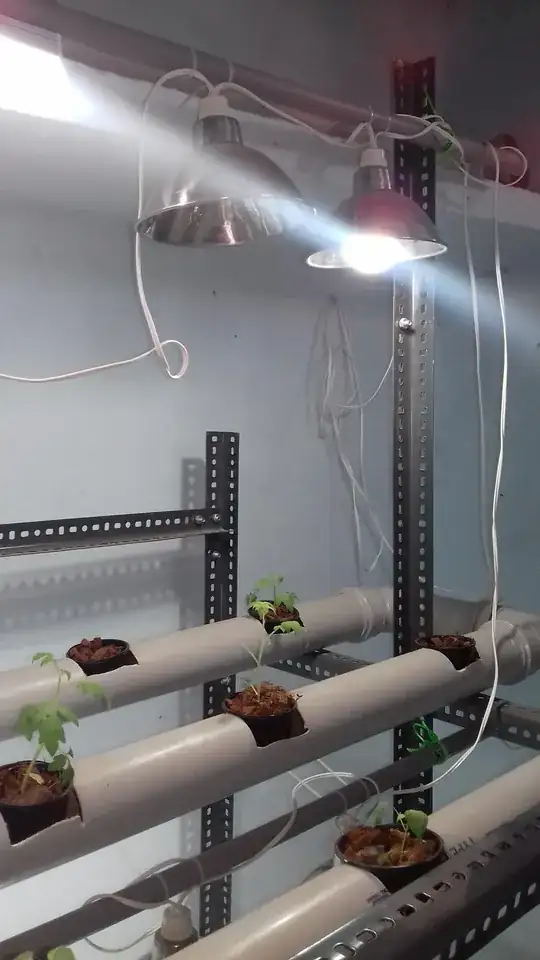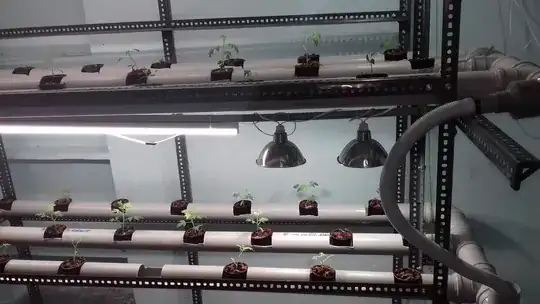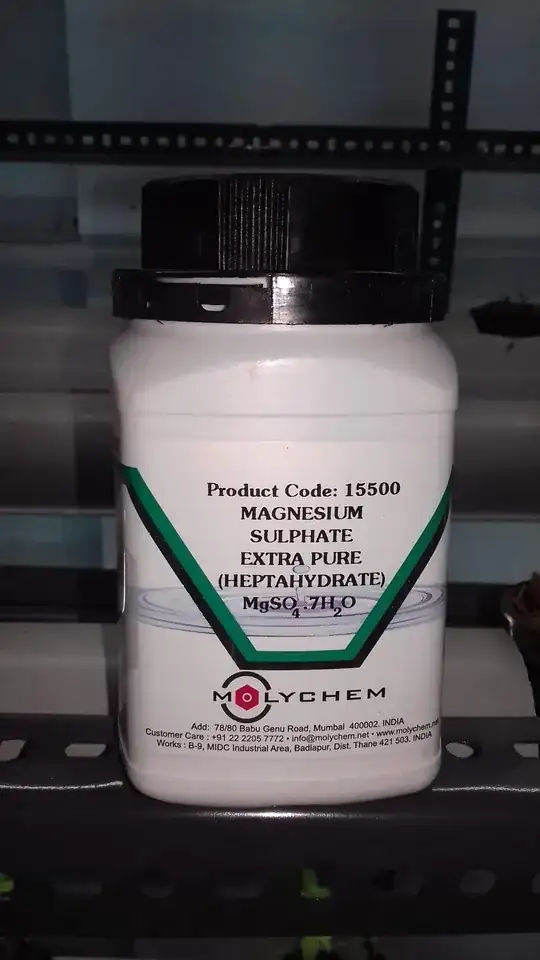I haven't done hydroponic gardening (and I don't know a terrible lot about hydroponics specifically), but from my observations of hydroponic fertilizer, it's usually very high in potassium compared to nitrogen and phosphorus. Your fertilizer has the same amount of potassium as it has nitrogen and phosphorus, and it's designed for use as a foliar spray (spraying the leaves; usually, you put hydroponic fertilizers in water to feed the roots, I believe; foliar sprays might be useful once in a while, but probably as a complement to the nutrients in the water, rather than a replacement; foliar nutrients don't go all the same places as root nutrients). I would switch fertilizers if I were you. You probably need specific levels of calcium, manganese, boron, copper, iron, zinc, and molybdenum if you're not adding them (stuff like silica, and sodium might be kind of helpful, too, in the proper amounts). Epsom salt is magnesium sulfate (so you've got magnesium and some sulfur, at least).
Also, your lights are extremely far away from your plants. How close they are makes a huge difference to their health and growth (I have used lights indoors, with soil). You want the lights as close as you can get them without burning them.
You might try Greenway Biotech's hydroponic fertilizer. I haven't tried it, but I've tried other stuff from them, and it's very good and affordable, with very fast, free shipping (like two days).
Notice the NPK values of this hydroponic tomato fertilizer (4-18-38; lots of potassium).
Notice the NPK values of this hydroponic pepper fertilizer (11-11-40; also lots of potassium). I've noticed the same trend with potassium with other hydroponic fertilizers. Anyway, you'd probably want to get something like those links offer, since it comes already equipped with a fair amount of minerals (so you won't have to get them individually). You may need other fertilizers to complement them eventually, though (e.g. one of the links suggests extra potassium nitrate for the blooming phase; you might want more of certain wavelengths of red light then, too, or lights of a lower color temperature, if you're not using LEDs; but certain wavelengths of blue light, or higher color temperatures if you're not using LEDs, are supposed to be great for leaf growth).
In your other question you showed a picture of the roots, which were kind of small and sparse. Proper levels of potassium and phosphorus are important for strong roots. Too much nitrogen can weaken roots (especially without enough potassium to balance it).
I don't know the proper amounts of all the nutrients. You'd have to ask a hydroponics enthusiast or expert about that, probably. But, I suppose those pre-mixed nutrients I mentioned above probably have the essentials.
Silica probably isn't an essential for hydroponic gardening, but it can be useful for plants. Sources include such as basalt rockdust, diatomaceous earth, etc. Rockdust tends to have a fast array of minerals; I believe some people use it for hydroponics. Sea minerals, of course, also have lots of minerals, and can give plants a quick boost (but don't overdo it as it's high in sodium). Those links just show you places that specialize in or sell the things I mentioned (if they ever get broken).



